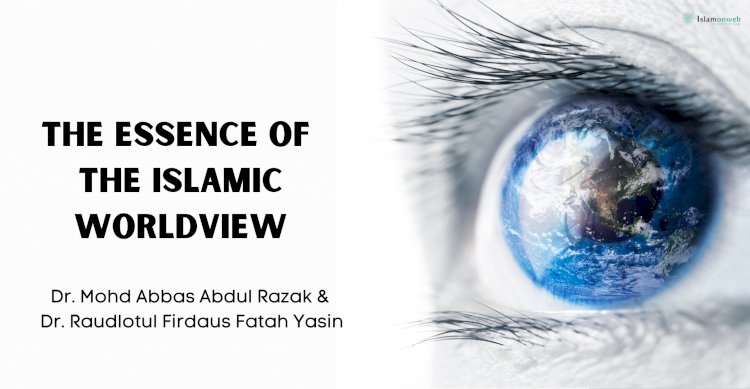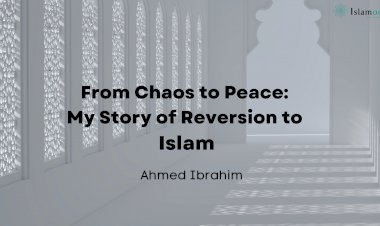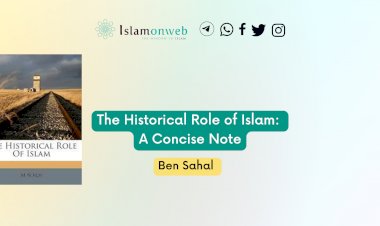The Essence of the Islamic Worldview
Since the dawn of humanity, people have been driven to seek answers to profound questions about their existence and the meaning of life. Caught in this perplexing condition, humanity has turned to prophets, philosophers, sages, and scholars to explain the purpose of life. As the world evolved from a primitive to a more modern setting, the expansion of human knowledge and understanding opened up many avenues for answering the once unanswerable questions. Though knowledge expansion in the world of science brought many positive changes in human life, on the philosophical level, humanity became so divided with countless contending ideas and ideologies that compartmentalized people into their own ways of thinking.
In the West, the end of the Dark Ages, which gave birth to the European Renaissance and Enlightenment, brought about many different philosophical views on what constitutes the ideal way of life for maximum satisfaction. Most of these philosophical thoughts on a good life are focused solely on worldly aspects. Being secular, these paradigms of life were more concerned with the ‘here and now’ and paid the least attention to life in the hereafter. Since God and religion were rejected during and after the Renaissance era, they found little relevance in the lives of Europeans. In contrast, in the East, people hold fast to their religious and traditional ways of life. As such, the worldview embraced by the masses was a God-centered one.
Before delving into the core of this essay, we will briefly define what a worldview is and examine some of the major classifications of worldviews followed by people around the globe. Upon achieving that we will highlight some of the main features of the Islamic worldview.
A Brief Definition of Worldview
Metaphorically, a worldview is like a lens through which people look at the world around them and their position in the hierarchy of creations. In other words, it is a philosophical way of looking at life and the meaning of human existence. Regardless of whether one is a believer in God or not, everyone is bound to have a worldview. Like other disciplines, in the study of worldview, there exist a myriad of schools of thought. All worldviews should be seen as attempts to explain what life is all about and how to solve human problems. The etymology of the word worldview goes back to the German word Weltanschauung. In Arabic, it is called “Ru’yatu li al-wujud” or “Tasawur li al-wujud.” A worldview is a philosophical way of looking at life and the purpose of one’s existence. What comes under the purview of a worldview is a wide spectrum of lifetime queries of man. Among others, the things that are queried include the notion of God, how man came to exist on this planet, the cosmology of the universe, why prophets are sent, whether there is life after death, what is knowledge, what is happiness, whether man has a soul, the role of the mind, and so forth. It is a fact generally accepted that every person has a worldview, whether a believer or a non-believer in God. For someone who does not believe in God, their worldview is to reject all those preached by religion, including God. The three main categories of worldview are religious, philosophical, and scientific. Each of the three has its own characteristics. A religious worldview is based on the religious ideas present in its sacred book, while a philosophical one refers to a particular school of thought, such as idealism, realism, existentialism, etc. As for a scientific worldview, it is purely based on the findings of science. Those who believe in the scientific worldview reject all that is intangible and unobservable. They adamantly stick to the scientific maxim that says, ‘If a thing cannot be measured that thing does not exist’. As such, they reject the existence of God, the human soul, angels, human resurrection, etc. Within the three main categories, there can be many sub-categories of worldview. Some worldviews have a limited scope, while others are broader in dealing with all issues related to human life. Secular and scientific worldviews only discuss the “here and now” of man, while most religious worldviews cater to answering everything, starting with man’s pre-existence, the purpose of this life, and matters related to eschatology. In contrast to the secular and scientific worldviews, the philosophical worldview is much broader and closer to the religious worldview because it discusses issues such as the human soul, value systems, wisdom, happiness, and so forth.
The Islamic Worldview
The foundation of the Islamic worldview stands firmly on the religious ideas and idealism communicated in the Qur’an and Sunnah, along with the interpretations given by Muslim religious scholars (Ulama). It is a worldview that provides a comprehensive and all-encompassing explanation of life and why man has been sent to this world. It deals with subject matters such as the cosmology of the universe, the nature of God, angels, revelation, prophets, freedom, death, Sunnatullah (the system/grand design of Allah in the world of reaction), resurrection, eschatology, and what is good and bad, among others. Unlike other worldviews, the Islamic worldview guides man in his role as the Khalifah of Allah (the vicegerent of God), as well as in personal and communal life. It outlines the duties man has to carry out in this world. In the Islamic worldview, the Dunya (this world) and Akhirah (the hereafter) aspects of human life are intricately linked. Neglecting either one of the two will prevent the individual from achieving his mission as the Khalifah of Allah. Another aspect of the Islamic worldview is that an individual Muslim must believe in both the seen and unseen realities taught in the religion. Modern-day Muslim philosopher al-Attas (1996) defines the Islamic worldview as “A metaphysical survey of the visible as well as the invisible worlds, including the perspective of life as a whole (p.26).”
The Islamic worldview is not the cultural product of any Muslim community or something that emerged as a matter of paradigm shift in the Muslim world. It does not reflect any particular brand of culture, be it Arab, Indian, Malay, etc. Instead, it has a place for everybody and every community in the world. It has an inclusiveness that embraces all of humanity. As such, it deserves to be called a universal worldview. Besides being universal, its other characteristics include rationality, comprehensiveness, balanced moderation, and monotheism. The Islamic worldview does not reject or accept everything or that comes from the world of science and is not anti-science. It only rejects aspects of modern science that contradict the fundamental and ethical teachings of the Qur’an, such as the Darwinian theory of evolution, the concept of designer babies, and surrogacy. Science and scientific investigations aimed at improving human life on this planet, as well as exploring God’s secrets and magnificence in the universe, are all in line with the spirit of the Islamic worldview. Moreover, according to the Islamic worldview, science must abide by the moral principles of God; thus, it is considered a value-laden endeavour, not a value-free one. While most worldviews discuss some aspects of man’s existence, the Islamic worldview discusses holistically all issues related to man’s life in this world and how to achieve happiness in this world and everlasting felicity in the hereafter. The Islamic worldview is the metaphysical framework of a Muslim that governs his entire life in line with the guidelines set in the Qur’an and Sunnah.
Concluding Remarks
The Islamic worldview, which falls under the religious worldview, is comprehensive and all-encompassing in the sense that it covers all aspects of human life. It addresses both the physical and spiritual worlds. It explains man's preexistence, the mission for which man has been sent to this world, and his journey into the next world upon finishing his mundane life. With such detailed explanations of man's spiritual journey, it relieves man of all anxieties in life. It is a worldview that teaches the importance of living a God-centered life, staying well-connected with one's inner dimension, the necessity of coexistence with nature and the universe, and the significance of humanity at large.
About the author
(Dr. Mohd Abbas Abdul Razak is an Academic Fellow at the Dept. of Fundamental & Inter-Disciplinary Studies, AHAS KIRKHS, IIUM and Dr. Raudlotul Firdaus Fatah Yasin is an Associate Professor at the Dept. of Qur’an & Sunnah, AHAS KIRKHS, IIUM)
Disclaimer
The views expressed in this article are the author’s own and do not necessarily mirror Islamonweb’s editorial stance.
























Leave A Comment